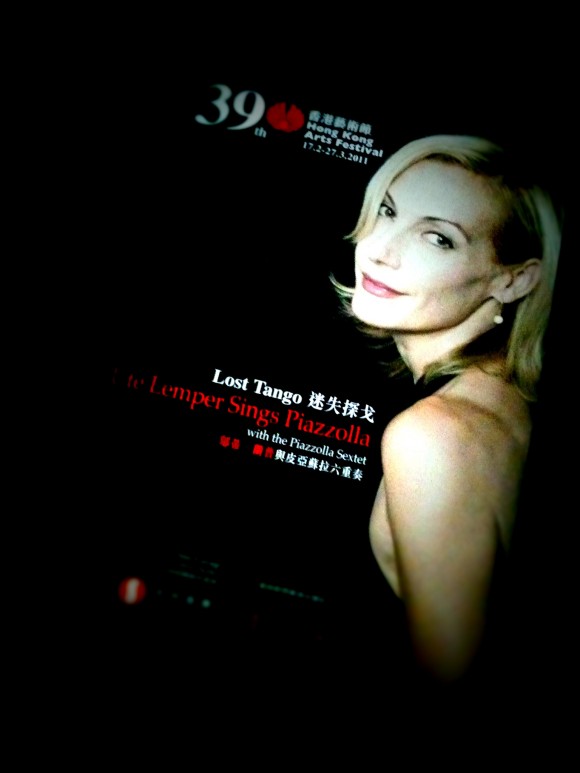Ute Lemper And The Piazzolla Sextet
When the 2011 Hong Kong Arts Festival programme was announced, the pairing of Ute Lemper and the Piazzolla Sextet immediately caught my eye. Astor Piazzolla was the progenitor of the Nuevo Tango, or new Tango; which took traditional elements of the Tango form and combined it with new instruments (like electric guitar) and new styles […]
When the 2011 Hong Kong Arts Festival programme was announced, the pairing of Ute Lemper and the Piazzolla Sextet immediately caught my eye.
Astor Piazzolla was the progenitor of the Nuevo Tango, or new Tango; which took traditional elements of the Tango form and combined it with new instruments (like electric guitar) and new styles (like Jazz). Although Piazzolla passed away in 1992, some of his original band-members continue that legacy with the current sextet.
Ute Lemper is a master of the European chanteuse -cabaret style; perhaps best known for her interpretations of the music of Kurt Weill. She is also an acclaimed stage performer, perhaps best remembered for her London and New York performances in Chicago.
Last year we had a fantastic Tango programme at the festival, thanks to Cafe De Los Maestros. Their music is classic tango, of the orquestra tipica style (violinist Fernando Suárez Paz played with both the Maestros and returned this year with the Piazzolla Sextet). But, Piazzolla’s music was an evolution from that sound and the collaboration with Ute Lemper (and her European sound) promised something altogether different and more challenging.
The concert started well, with a voice-over poem in Spanish setting the mood (it depicted late night streets of Buenos Aires) and then the Sextet launched into two instrumental Piazzolla tunes. The fireworks, as well as the tensions, really only came when Lemper entered the stage.
To be fair, she never pretended to be a Tango singer. Her diction is Spanish was solid (Lemper also sung in English, French and of course, German) and it was clear she understood the lines she was singing, articulating them with menace and nihilism when appropriate.
But, the concert was at its best when the performers stayed truest to their origins. The Sextet seldom soared when in the supporting role and Lemper’s best moments came while drawing from the European, rather than Argentinian songbook.
The exception was the delicate song, Chiquilin De Bachin, which Lemper introduced with a brief forward and was performed in a way that allowed both the singer and the Sextet to shine, with each settling in and giving the other space and room. This was also one of the few occasions that guitarist Ricardo Lew was able to ring through clearly (again, as is so often the case at the Cultural Centre, the sound was terrible), the other being a wonderful rendition of the Ne Me Quitte Pas.
In a way this concert was a fusion that had yet to fuse. Each musician displayed prodigious talent and range (especially Marcelo Nisinman on Bandoneón). But, collectively something was missing. The music was always captivating and brilliantly performed, but it never managed to take us anywhere new.
To be fair, this was a fresh collaboration – Ute Lemper and The Piazzolla Sextet are at the start of a journey. In a way, it was bold and forward thinking of the Hong Kong Arts Festival to book an act that has yet to tour the world and record together – a new work of global significance.
And, this is what great Arts Festivals are all about – pushing the boundaries forward, taking risks and claiming new ground. However far this group go it will be worth remembering that they started the journey here, in Hong Kong.





